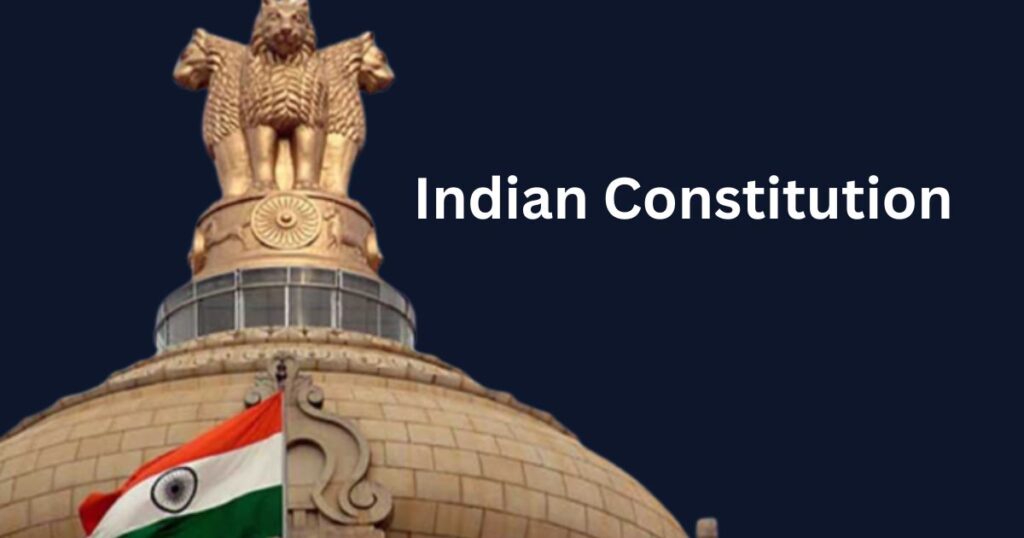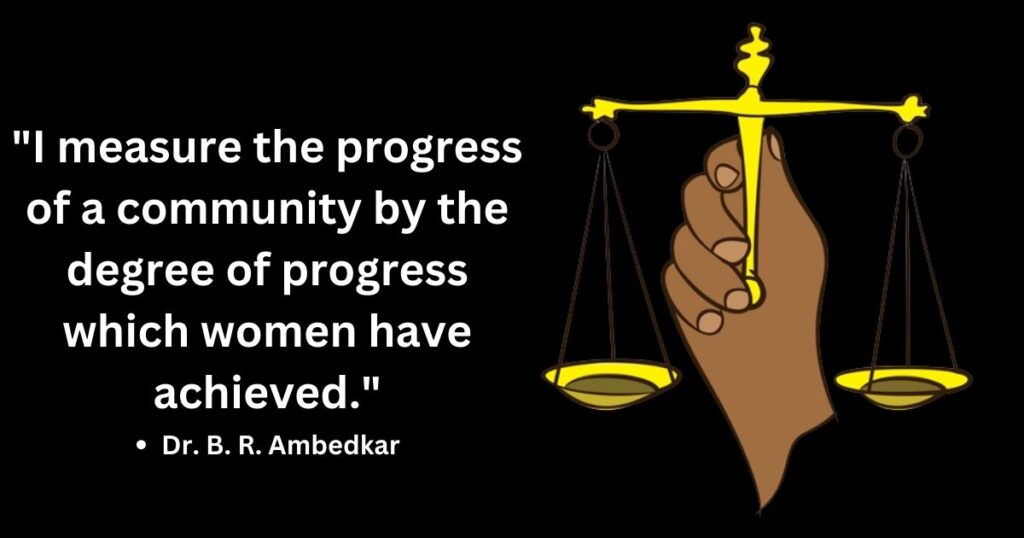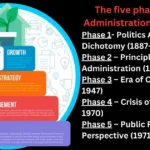Dr. B.R. Ambedkar’s Views on Indian Constitution, Social Justice & Economics. Gain insights into his transformative ideologies for an equal society. Dr. B.R. Ambedkar was a visionary leader whose contributions to Indian society are immeasurable. His perspectives on the Indian Constitution, social justice, and economics have left an indelible mark not only on India but on the world. Dr. Ambedkar was the chief architect of the Indian Constitution and played a crucial role in shaping its principles of democracy, freedom, and equality. He believed in creating a just and equitable society, free from discrimination and inequality, and worked tirelessly towards that goal.
In this article, we will take a closer look at Dr. B.R. Ambedkar’s views on the Indian Constitution, social justice, and economics. We will explore his ideologies, principles, and significant contributions that continue to shape India’s social and political landscape today.
Key Takeaways:
- Dr. B.R. Ambedkar was a key leader in shaping the Indian Constitution, which is the foundation of India’s democratic and egalitarian society.
- He was an advocate for social justice and worked tirelessly towards creating a more equitable society, free from discrimination and inequality.
- Dr. Ambedkar’s ideologies and principles continue to inspire social and political reforms in India and around the world.
- His economic theories and reforms aimed to uplift marginalized communities and promote socioeconomic equality.
- Dr. B.R. Ambedkar’s vision for India emphasized social justice, equality, and inclusivity, and his contributions to shaping the Indian Constitution reflect these principles.
Dr. B.R. Ambedkar’s Perspective on Social Inequality
Dr. B.R. Ambedkar was a visionary social reformer who dedicated his life to fighting against social inequality, particularly the caste system that had plagued Indian society for centuries. He was a fierce advocate for equal rights and opportunities for all, regardless of their caste or social status.
Ambedkar’s impact on Indian society cannot be overstated, as his efforts paved the way for significant social reforms and progress towards a more equitable society. His perspective on social inequality was influenced by his own experiences as a member of the Dalit community, who faced discrimination and oppression based on their caste.
Ambedkar believed that the caste system was a fundamental obstacle to social justice and equality in India. He argued that the caste system was inherently discriminatory and denied people of lower castes basic human rights and opportunities for social mobility.
Ambedkar’s tireless efforts to eradicate caste-based discrimination and promote social reform were instrumental in the drafting of the Indian Constitution. He ensured that the Constitution included provisions for affirmative action and reservations for historically marginalized communities, including Dalits.
Ambedkar’s impact on Indian society is evident in the progress made towards a more equitable society. While there is still work to be done, Ambedkar’s perspectives and efforts laid the foundation for a more just and inclusive India.
“Caste is not a division of labor, it is a division of laborers.” – Dr. B. R. Ambedkar
Dr. B. R. Ambedkar’s Views on Indian Constitution & Vision for India

Dr. B.R. Ambedkar played an instrumental role in shaping the Indian Constitution, and his principles and ideologies continue to have a significant impact on Indian society. His vision for India was grounded in his commitment to social justice, equality, and inclusivity, and he worked tirelessly to create a more progressive and democratic country.
One of the key principles that guided Dr. Ambedkar’s vision for India was his belief in the importance of fundamental rights and freedoms for all individuals. He advocated for the inclusion of provisions related to freedom of speech, religion, and expression in the Indian Constitution, ensuring that all citizens had the right to express themselves freely and without fear of persecution.
Dr. Ambedkar’s vision for India also emphasized the need for social and economic equality. He believed that the Indian Constitution should provide equal opportunities for all individuals, regardless of their caste, gender, or socio-economic background. To this end, he advocated for the inclusion of provisions related to affirmative action and reservations in the Constitution, ensuring that historically marginalized communities had access to education, employment, and political representation.
Another key aspect of Dr. Ambedkar’s vision for India was his emphasis on inclusivity. He believed that India should be a country where all individuals felt welcomed and valued, regardless of their religion, ethnicity, or language. To this end, he advocated for the inclusion of provisions related to minority rights in the Indian Constitution, ensuring that all individuals had the right to practice their religion and culture freely and without fear of discrimination.
In conclusion, Dr. B.R. Ambedkar’s principles and ideologies continue to shape Indian society to this day. His vision for India was grounded in his commitment to social justice, equality, and inclusivity, and the Indian Constitution reflects many of his key principles. By advocating for fundamental rights, social and economic equality, and inclusivity, Dr. Ambedkar helped to create a more just and equitable society for all Indians.
Dr. Ambedkar’s Contributions to the Indian Constitution
Dr. B.R. Ambedkar played a pivotal role in the drafting and formulation of the Indian Constitution. His expertise in law, constitutional principles, and social justice provided a unique perspective that helped shape the foundation of the Indian republic.
As the chairman of the Drafting Committee, Dr. Ambedkar ensured that the Constitution reflected the principles of democracy, equality, and social justice. He was instrumental in the inclusion of provisions related to fundamental rights, the abolition of untouchability, and the reservation system for disadvantaged communities.
| Ambedkar’s Contributions to the Indian Constitution | Description |
|---|---|
| Championed Fundamental Rights | Dr. Ambedkar was a strong advocate for fundamental rights and believed that every citizen should be protected from discrimination and oppression. He ensured the inclusion of provisions related to freedom of speech, religion, and expression in the Constitution. |
| Abolition of Untouchability | Dr. Ambedkar was a fierce opponent of the caste system and the practice of untouchability. He was instrumental in the inclusion of provisions that abolished untouchability and ensured equal rights for all citizens. |
| Reservation System | Dr. Ambedkar believed that affirmative action was necessary to address historical injustices and promote social equity. He played a key role in the inclusion of the reservation system for disadvantaged communities in education, employment, and politics. |
Dr. Ambedkar’s contributions to the Indian Constitution have had a lasting impact on Indian society. His vision of a democratic and equitable society continues to inspire generations of Indians to fight for their rights and demand social justice.
Dr. Ambedkar’s role in shaping the Indian Constitution is a testament to his commitment to social justice and inclusivity, making him one of the most influential figures in Indian history.
Dr. Ambedkar’s Perspective on Social Justice

Dr. B.R. Ambedkar was a staunch advocate for social justice and worked tirelessly to bring about social reforms in India. His perspective on social justice was rooted in his belief that every individual deserved equal rights and opportunities, regardless of their caste, creed, or religion.
Dr. Ambedkar’s efforts to address historical injustices and promote social equity were reflected in his ideas on equal rights, reservations, and affirmative action. He believed that these measures were necessary to level the playing field and address the systemic discrimination faced by marginalized communities in India.
Through his advocacy and activism, Dr. Ambedkar played a crucial role in shaping the Indian Constitution, which enshrines principles of social justice and equality. He fought to ensure that the Constitution included provisions that protected the rights of all individuals, including those who had been historically marginalized or oppressed.
Dr. Ambedkar’s perspective on social justice continues to be relevant today, as India continues to grapple with issues of inequality and discrimination. His legacy serves as an inspiration to those who continue to fight for a more just and equitable society.
Dr. Ambedkar’s Economic Theories and Reforms
Dr. B.R. Ambedkar was a strong proponent of economic empowerment as a means to uplift and eradicate poverty among marginalized communities in India. His economic theories and reforms were guided by the principles of social justice and equality.
One of Dr. Ambedkar’s major economic reforms was land reform. He believed that land ownership was crucial to promote economic freedom and independence. He advocated for land redistribution policies to enable landless farmers and marginalized communities to own land. His efforts led to the implementation of the Tenancy and Agricultural Land Acts in some Indian states.
In addition to land reform, Dr. Ambedkar emphasized the need for industrialization in India. He believed that industrialization would create job opportunities and contribute to economic growth. He proposed state ownership of industries to ensure equitable distribution of wealth and resources.
Dr. Ambedkar’s economic theories also included the promotion of education and entrepreneurship among marginalized communities. He believed that education and entrepreneurship were key to breaking the cycle of poverty and empowering individuals to become financially independent.
Overall, Dr. Ambedkar’s economic reforms were aimed at creating a more equitable and just society, where all individuals have equal access to economic opportunities and resources.
Social Justice in the Indian Constitution According to Dr. B.R. Ambedkar
Dr. B.R. Ambedkar’s vision for the Indian Constitution was grounded in the principles of social justice, equality, and inclusivity. His perspective on social justice was deeply influenced by his personal experiences with discrimination and the caste system. He firmly believed that the Constitution must ensure equal rights and opportunities for all, regardless of their social or economic background.
Through his tireless efforts, Dr. B.R. Ambedkar advocated for the inclusion of several provisions related to social justice, equality, and fundamental rights in the Indian Constitution. These provisions were instrumental in promoting the welfare and rights of marginalized communities in India.
Dr. B.R. Ambedkar’s perspective on social justice was based on the idea that social hierarchies must be abolished, and all individuals should have access to the same opportunities. He was a strong advocate of reservations and affirmative action to address historical injustices and level the playing field for disadvantaged communities.
Dr. B.R. Ambedkar’s ideas on social justice heavily influenced the Indian Constitution, ensuring the inclusion of provisions related to equality, justice, and fundamental rights. His vision of a just and equitable society continues to resonate in India and beyond.
Dr. Ambedkar’s Ideology on Social Equality
Dr. B.R. Ambedkar’s ideology on social equality was grounded in the belief that all individuals should have equal opportunities and rights. He recognized that the caste system was a significant barrier to achieving social equality and advocated for its complete abolition. Ambedkar believed that social hierarchies must be dismantled to create a fair and just society for all.
Ambedkar’s ideology on social equality involved the promotion of equal access to resources and opportunities, regardless of an individual’s social background. He emphasized the importance of a level playing field to ensure that everyone had an equal chance to succeed. Ambedkar believed that affirmative action programs and reservations were necessary to redress historical injustices and create a more equitable society.
Dr. Ambedkar’s ideology on social equality was closely linked to his vision of a democratic India that provided equal rights and opportunities to all its citizens. He believed that the Indian Constitution should enshrine these principles and guarantee fundamental rights to every individual. His contributions to the drafting of the Constitution were instrumental in ensuring that provisions were included to protect the rights of marginalized communities and promote social justice.
In summary, Dr. B.R. Ambedkar’s ideology on social equality was founded on the belief that every individual should have equal access to resources and opportunities. His efforts to challenge discriminatory practices and create a more egalitarian society have had a lasting impact on India. His vision for a just and equitable society continues to inspire and guide social reform movements in the country today.
Conclusion
Dr. B.R. Ambedkar’s contributions to India’s social justice, economic reforms, and the Indian Constitution have had a far-reaching impact on Indian society. His beliefs and principles continue to inspire generations to bring about social cohesion, inclusion, and progress.
Dr. Ambedkar advocated for social equality, justice, and the eradication of the caste-based system in India. His vision for a truly democratic and progressive India was enshrined in the Indian Constitution, with specific provisions reflecting his principles of equality, justice, and fundamental rights.
Dr. Ambedkar was committed to eradicating social injustices and promoting economic empowerment. His economic theories and reforms centered around land reforms, industrialization, and economic upliftment for marginalized communities.
Dr. Ambedkar’s Legacy
Dr. Ambedkar’s contribution to India’s social, economic, and constitutional reforms remains significant. His ideas continue to inspire policymakers and activists committed to social justice and equality. His vision for a more equitable society remains an inspiration for generations to come.
FAQ
Q: What were Dr. B.R. Ambedkar’s views on the Indian Constitution, social justice, and economics?
A: Dr. B.R. Ambedkar believed in the principles of social justice and equality. He played a significant role in the drafting of the Indian Constitution and advocated for inclusivity, fundamental rights, and social reforms. Additionally, he emphasized the need for economic empowerment and reforms to uplift marginalized communities.
Q: What was Dr. B.R. Ambedkar’s perspective on social inequality?
A: Dr. B.R. Ambedkar strongly opposed social inequality, particularly the caste system and discrimination in Indian society. He dedicated his efforts to eradicating caste-based discrimination and championed social reforms to ensure equal rights and opportunities for all.
Q: What was Dr. B.R. Ambedkar’s vision for India?
A: Dr. B.R. Ambedkar envisioned a progressive and democratic India characterized by social justice, equality, and inclusivity. He believed that the Indian Constitution should be guided by these principles and worked towards creating a society free from discrimination and social hierarchies.
Q: What were Dr. B.R. Ambedkar’s contributions to the Indian Constitution?
A: Dr. B.R. Ambedkar made significant contributions to the drafting and formulation of the Indian Constitution. He advocated for provisions that guarantee fundamental rights, social justice, equality, and inclusivity. His vision and principles continue to shape the constitutional framework of India.
Q: What was Dr. B.R. Ambedkar’s perspective on social justice?
A: Dr. B.R. Ambedkar believed in the importance of social justice in achieving a fair and equitable society. He advocated for equal rights, reservations, and affirmative action to address historical injustices and promote social equity for marginalized communities.
Q: What were Dr. B.R. Ambedkar’s economic theories and reforms?
A: Dr. B.R. Ambedkar’s economic theories focused on land reforms, industrialization, and economic empowerment as ways to uplift marginalized communities and promote socioeconomic equality. He believed in creating opportunities for all individuals to thrive and succeed.
Q: How did Dr. B.R. Ambedkar influence social justice in the Indian Constitution?
A: Dr. B.R. Ambedkar’s principles and ideologies greatly influenced the inclusion of provisions related to social justice, equality, and fundamental rights in the Indian Constitution. His vision of a just and equitable society played a crucial role in shaping the constitutional framework of India.
Q: What was Dr. B.R. Ambedkar’s ideology on social equality?
A: Dr. B.R. Ambedkar firmly believed in the abolition of social hierarchies and the promotion of equal opportunities for all individuals. He dedicated his life to challenging discriminatory practices and creating a more egalitarian society where every individual is treated with dignity and respect.
People Also Read: The Basic Structure Doctrine of the Indian Constitution











